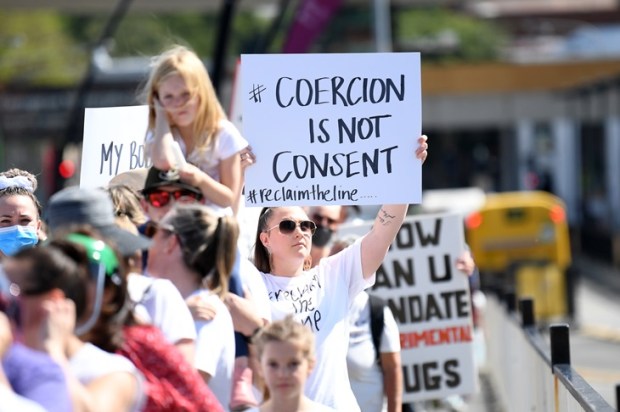This year, Venezuela sits on the United Nations Human Rights Council despite the egregious human rights violations committed under Nicolas Maduro’s oppressive regime. Venezuela’s election to the world’s highest human rights body is an insult to the millions of people who have fled the country to escape tyranny and economic turmoil. But it should not come as a surprise.
Year after year we witness the same shameful spectacle take place at the UNHRC, where authoritarian regimes are elected to positions of moral primacy, liberal democracies are subject to endless opprobrium, and the very concept of human rights is fantastically distorted. It is time for principled democratic states to withdraw from the UNHRC.
As an institution, the United Nations is not held accountable in the way that a democratically elected government would be. It rarely faces credible high-level scrutiny — even in cases of widespread sexual exploitation.
Leadership is often silent when blatantly misogynistic regimes like Saudi Arabia are elected to UN women’s rights bodies. Largely unchallenged is the scandalous waste of time spent collectively praising the human rights records of dictatorial regimes like North Korea and state sponsors of terrorism like Iran while challenging freedom of speech and the universal liberal values upon which the UNHRC was founded.
Scrutiny of the mismanagement of funds is also insufficient. From 2006 to 2008, for example, the independent UN Procurement Task Force that was established to investigate fraud uncovered 20 major corruption schemes and more than $630 million in alleged contract fraud. The task force only lasted three years before certain countries refused to extend its mandate.
While a lack of transparency, oversight, and accountability permeates much of the UN system, it is arguably the UNHRC that displays the sorriest case of seemingly good intentions gone wrong. It has become a woefully inept body that spends much of its time attacking Israel while deflecting attention away from the most pressing humanitarian crises.
The UNHRC was initially established to replace the heavily criticised United Nations Commission on Human Rights with the promise that membership would be limited to governments that uphold the highest standards in the promotion and protection of human rights. It goes without saying that the composition of the council, which in 2019 included China, Cuba, Saudi Arabia, Afghanistan, Pakistan, Somalia, and the Democratic Republic of the Congo, and now in 2020, Venezuela, Sudan (capital punishment for homosexual activity) and slavery stronghold Mauritania, in no way lives up to this ideal.
The concept of a single, unaccountable body designed to lecture and condemn sovereign nations over their human rights situations is inherently vulnerable to abuse when practised. It is not a matter of politicisation (any international organization will inevitably be used at some point as a political device) but of abuse and the provision of a platform for it.
The UNHRC has been repeatedly hijacked by abusive regimes intent on controlling the council’s agenda, blocking resolutions against fellow dictatorships, and hiding their own abysmal records. Dictators and leaders of authoritarian regimes are emboldened by their sanctified positions in international fora.
This not only makes a mockery of the principles that the council is meant to defend, but it has a more sinister consequence; it positions the UNHRC as an obstacle, instead of an ally, to genuine political dissidents calling for freedom from authoritarian regimes.
While it is certainly absurd to hear Venezuela and Cuba at UNHRC sessions spout juvenile rhetoric about the “imperialist” West, the United States, and its “subordinated allies”, it is altogether dismaying that Venezuelan activists seeking to advance freedom in the region have to stand firm against a UN vote.
It is similarly stupefying when the UN Human Rights Office feels it is necessary to tweet about the “urgent threat” of “free market fundamentalism,” but it is not amusing to see the body accede to the requests of China and hand over the names of Chinese activists due to testify before the UNHRC — effectively facilitating their potential harassment and intimidation.
Compounding this harm is that the UN remains the most trusted multinational institution in the world and continues to hold moral authority across schools, universities, and mainstream media. Resolutions sponsored by politically motivated nation-states and despotic regimes are portrayed as fundamental truths.
When most countries face minimal domestic scrutiny and pay the UN less of their taxpayer money than the US does, there is little incentive to look beyond the ineffective and fundamentally flawed UNHRC.
There are far better ways to advance the cause of human rights than by funding and legitimisng the UNHRC as it continues to embolden dictators and institutionalise the scapegoating of Israel.
In 2018, the US withdrew from the human rights council for these very reasons. Then US Ambassador to the UN, Nikki Haley, described it as a “hypocritical and self-serving organization” that for too long has “been a protector of human rights abusers.” Over a year and a half later, not much has changed.
Courageous liberal democracies should withdraw from the United Nations Human Rights Council, delegitimise the dictators, and embark on a real effort to defend universal human rights and fundamental freedoms.
Sonia Zvedeniuk is a contributor at IGO Watch and a former Fellow at UN Watch. This piece was originally published in the Washington Examiner and is reproduced with permission.
Got something to add? Join the discussion and comment below.
Got something to add? Join the discussion and comment below.
Get 10 issues for just $10
Subscribe to The Spectator Australia today for the next 10 magazine issues, plus full online access, for just $10.


























Comments
Don't miss out
Join the conversation with other Spectator Australia readers. Subscribe to leave a comment.
SUBSCRIBEAlready a subscriber? Log in